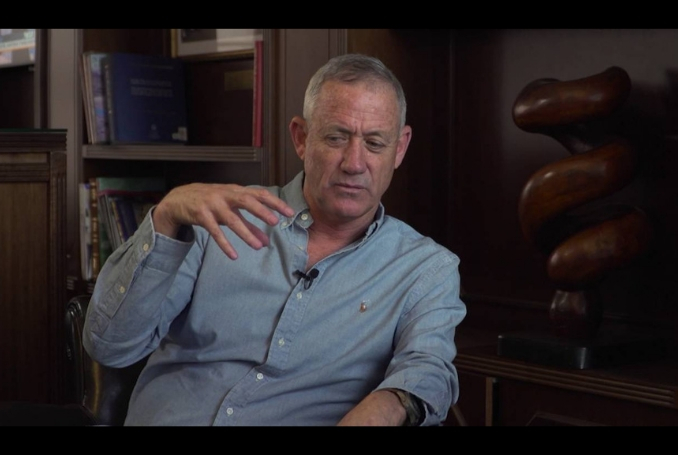
By Ramona Wadi
Former Defence Minister Moshe Ya’alon has aligned himself politically with Benny Gantz, the former Israeli Defence Forces (IDF) Chief of Staff and chairman of the Israel Resilience party. The Israeli election propaganda is generating considerable speculation and reactions. Yesterday, considerable attention was given to the fact that Gantz indicated support for the previous Israeli disengagement from Gaza, calling it “a diplomatic move” and that Israel needs to “take the lessons learned and implement them elsewhere.”
Ya’alon’s party, Telem, and Israel Resilience are running a joint electoral campaign. Seemingly diverging from Gantz, Ya’alon expressed the settler population’s purported “right to settle every part of the Land of Israel.” Settlements were described as a matter of “strategic security importance.”
While Gantz’s comments have unleashed anger among Israelis, even prompting Israeli Prime Minister Benjamin Netanyahu to issue a statement, it is wrong to depict Gantz as a favorable alternative. Israeli media published reports stating that Palestinian Authority leader Mahmoud Abbas is partial to Gantz winning the elections; the claims have been refuted by the PA.
The only apparent difference between Ya’alon and Gantz so far is that the latter possesses less forthright rhetoric which can be interpreted as concessionary. Gantz’s comments are misleading due to the fact that they only take into consideration the current scenario in order to dissociate from Israel’s history of colonial violence.
In his interview with YNet News, Gantz referred to Netanyahu’s 2009 Bar-Ilan speech, ostensibly to back up his claim:
“We need to find a way in which we’re not controlling people.”
Control is part of colonialism. Unless Gantz is speaking from a different political concept, and this premise can be eliminated instantly as it is non-existent, the underlying message is an innovation of control into something that can be misconstrued according to Israel’s demands.
Gantz is also prioritizing Israel’s security and, according to the Times of Israel, declared,
“We won’t let millions of Palestinians living beyond the fence endanger our identity as a Jewish state.”
How different is Gantz’s rhetoric from Ya’alon’s? More importantly, where is the evidence that Gantz is against controlling the colonized Palestinian population?
The two-state paradigm once again comes into play. Ya’alon has already established his opposition to the obsolete international requirement. Gantz, on the other hand, spoke about “something different” without specifications and refrained from endorsing the two-state hypothesis. What these statements convey is a monopoly over the outcome and that involves safeguarding Israel’s demographic majority which, in itself, is a form of control over the indigenous Palestinian people.
It also exposes how it is only the PA that remains tethered to seeking out the international community, while Israel decides how and when to evoke mention of the two-state compromise, even if to assert its refusal, in order to consolidate its political gain. Gantz is playing the same game in a seemingly appeasing manner.
His track record with the Israeli army is an example of how integral control is to Gantz’s thinking. It might differ from that of Netanyahu and the more vocally belligerent Israeli politicians, but his strategy implies a trajectory of costs for Palestinians, just as it did with other Israeli leaders.
– Ramona Wadi is a staff writer for Middle East Monitor, where this article was originally published. She contributed this article to PalestineChronicle.com.







